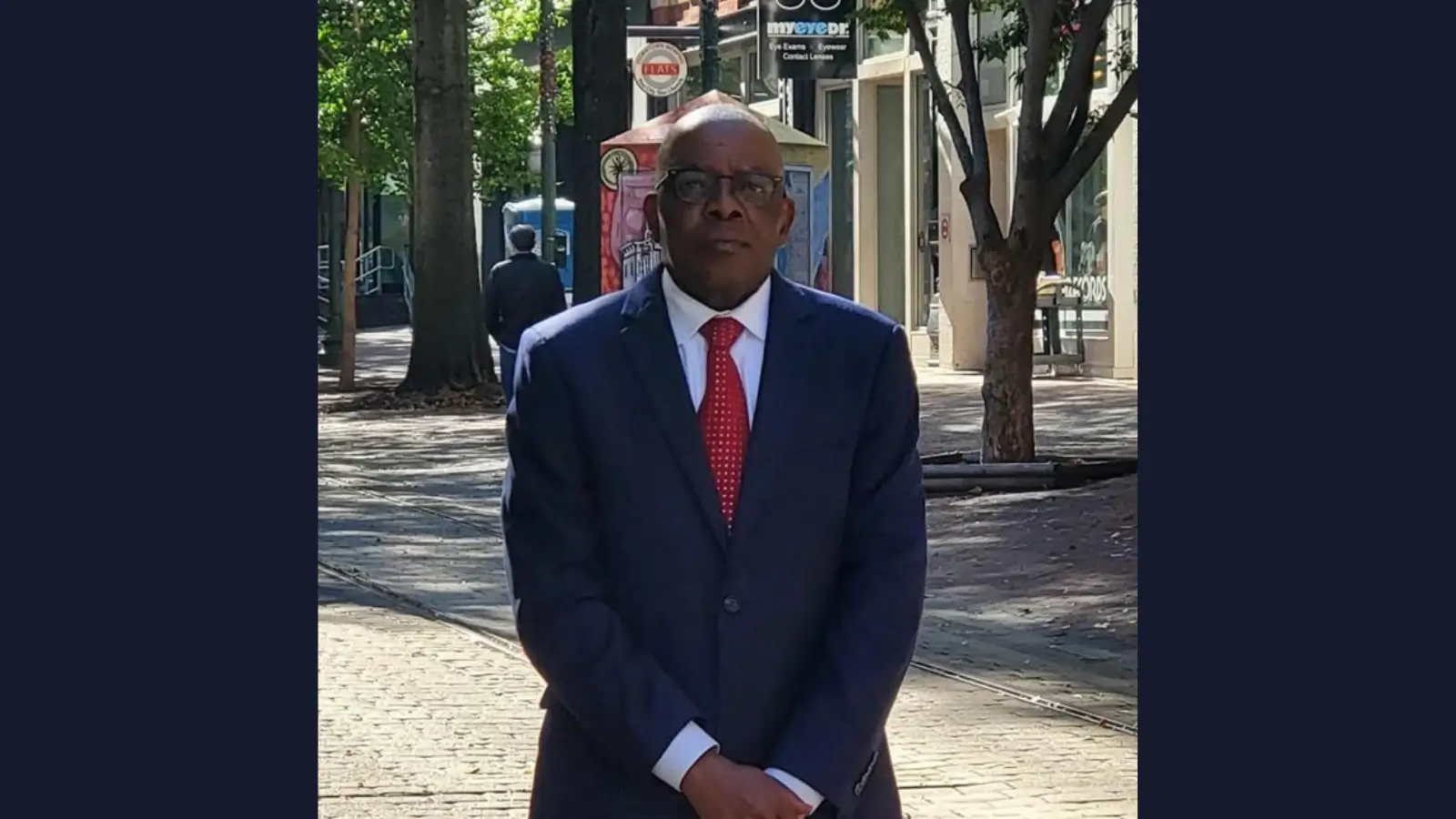Idriss Al Rifai dominates the fintech landscape — an environment where the pace of change only increases year after year. In an era where people dedicate themselves to just a single career path, Al Rifai has had a rich professional background that includes playing professional basketball, becoming a member of the French Special Forces, and now heading a science and tech company Flow48. During his tenure at Flow48, a firm that specializes in consultancy for innovative financing solutions, is focused on revolutionizing the SME financing sector using alternatives financing models and the latest tools like DeFi.
Below is the Business Outstanders interview where Idriss Al Rifai discusses the details of an unconventional professional path, the prospects of fintech and its difficulties in the context of alternative financing, specifically targeting SMEs with the help of modern solutions.
Q. Your career journey spans from professional basketball to the French Special Forces and now to leading Flow48. What were the essential skills or lessons you carried with you from each stage of your career that have influenced your leadership style today?
Each phase of my career has provided me with critical lessons. From basketball, I learned discipline, teamwork, and the importance of a shared goal. In the Special Forces, I gained resilience and the ability to perform under pressure, often in unpredictable environments. That experience taught me that leadership isn’t just about giving orders but about being present for your team, especially in tough moments. I also learned a lot about small team dynamics and how to make the best of a situation. Later, at University of Chicago, my MBA gave me some of the tools required for entrepreneurship and gave me that confidence that great businesses can be built with the right strategy and the right mindset.
These diverse experiences have given me a holistic view of leadership —balancing empathy with decisiveness and always thinking a few steps ahead. Ultimately, it’s about understanding that leadership is not one-size-fits-all; it’s about knowing when to be decisive, when to step back, and how to navigate challenges independently.
Q. As a CEO in the fintech industry, how do you nurture an entrepreneurial mindset within your organization, especially in a field that is rapidly evolving?
I think there are 2 things. The first one is to create an environment where ownership is rewarded. Making mistakes is a necessary byproduct of making decisions. So you have to create a culture where innovation is celebrated, and failure is seen as a stepping stone rather than a setback. At Flow48, we encourage testing within a structured framework. This means that while we push for new ideas and solutions, we also ensure that they align with our long-term objectives.
I often remind the team that the fintech space is evolving faster than most industries, and agility is essential. We foster a mindset where everyone thinks like a founder, taking ownership of their projects and being proactive in finding solutions. It goes without saying that fostering a culture where everyone challenges each other is key, whatever your position in the company: history has shown us that front-line employees can be a great initiator and driver of innovation within a company.
Q. The alternative financing landscape can be complex and competitive. What unique challenges have you encountered at Flow48, and how have you addressed them to ensure the company’s growth and stability?
One challenge we often face is the information asymmetry in emerging markets, particularly when dealing with SMEs. Many businesses have potential but lack the track record or financial transparency that traditional lenders require. To bridge this gap, we’re leveraging technology—specifically real-time data analytics and alternative data sources —to create more accurate risk profiles for these companies. This allows us to offer tailored solutions while managing risk more effectively. What is very interesting is that the landscape is rapidly evolving and despite having to deal with suboptimal products around you, the mere creation of an ecosystem where you constantly triangulate, validate other’s data points is what - I think - gets us ahead of the pack.
Another challenge is navigating regulatory landscapes that vary across regions, and for that we’ve built strong partnerships with local players to ensure compliance and smooth operations.
Q. Given the volatile nature of the financial industry, how do you keep your team adaptable and resilient in the face of change? Can you share an example of a challenge that required quick adaptation and how your team responded?
A recent example of this was when preparing for our entry into the KSA market. The regulatory framework around tech, particularly data localization and cross-border data handling, required us to quickly assess and adapt our cloud infrastructure but also our overall setup to make sure compliance is achieved. Our head of tech, raised important points about how we could ensure compliance while maintaining efficiency, given the local regulations.
We had to act fast, working closely with legal advisors and our tech team to make the necessary adjustments to our systems. This challenge demands close collaboration across teams, and by staying agile and focused, we are able to meet regulatory requirements without disrupting our broader goals. The whole team found a solution together, navigating different options with each one having its set of tradeoffs.
Q. Flow48 is looking to leverage DeFi and real-time data analytics. How do you see these technologies changing the financing landscape, especially for SMEs, in the next five years?
DeFi and real-time analytics are set to give broader access to finance. SMEs often struggle to access funding because traditional banks rely on outdated credit models. With real-time data, we can create more dynamic and accurate profiles of these businesses, allowing us to offer faster, more tailored financial solutions.
DeFi, on the other hand, removes intermediaries, lowering the cost of capital and making financing more accessible. Over the next few years, we might see a shift towards decentralized platforms where SMEs can directly interact with investors, breaking down geographic and bureaucratic barriers.
Q. Reflecting on your own career, how important do you believe mentorship is in entrepreneurship? What advice would you give to those seeking mentorship in today's business environment?
One thing I’ve learned is that mentorship isn’t just about seeking advice from someone more experienced, it's about building a relationship where you’re both learning. In today’s fast-paced business environment, my advice is to find mentors who challenge your thinking, not just confirm it. Also, don’t limit yourself to traditional mentorship. Learning from peers, clients, and even competitors can provide unique perspectives that drive growth.
Q. Balancing a demanding career with personal life can be challenging. How do you maintain that balance, and what practices do you recommend for other leaders who may struggle with this?
I tend to think it’s all about setting boundaries and being intentional with your time. I’ve found that quality matters more than quantity when it comes to both work and personal life. I schedule dedicated time for me and personal development, just like I would for important business meetings. For others, my advice is to be present in the moment, whether you're at work or with your family. Trying to multitask between the two often leads to burnout and dissatisfaction in both areas.
I also am trying to enjoy the journey more than the outcome. In the past, I used to be solely focused on the outcome: “when we're gonna reach X or gonna be this big, I’ll be fulfilled”. I realized that this kind of endeavor is like chasing a rabbit and that you HAVE to enjoy the journey and have to find your own balance in the middle of what other people perceive as utter craziness with the travels and the working hours.
“Innovation isn’t about the latest trend, it’s about continuously questioning how we can do things better, faster, and nice for the people.”
Conclusion:
Leadership is more than a set of technical competencies; it is a process of development, growth and learning as well as building the culture of innovation and accountability.The progression from being an athlete, particularly a basketball player, flowing through the Special Forces, and now leading Flow48 has helped in reinforcing personal and group resiliency as well as strategic thinking. The strategic priorities for today’s top performers in the rapidly evolving environment, especially for the fintech sector, are the promotion of an entrepreneurial mentality, technology utilization, and time management. Exploring this thought for a moment, focusing on the process is far more important than focusing on the results.
Idriss Al Rifai's LinkedIn: https://ae.linkedin.com/in/ialrifai
Company Domain: www.flow48.com
















